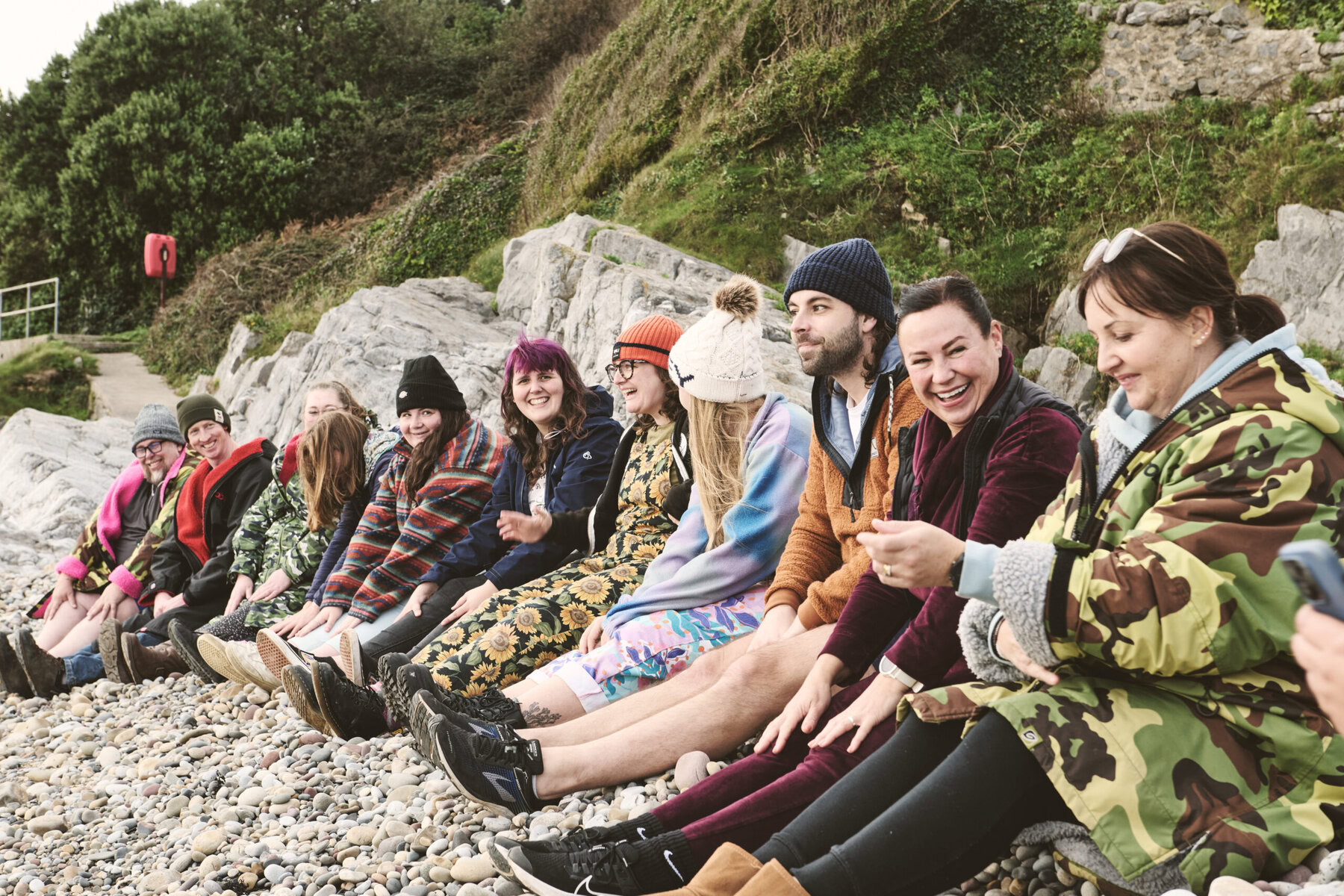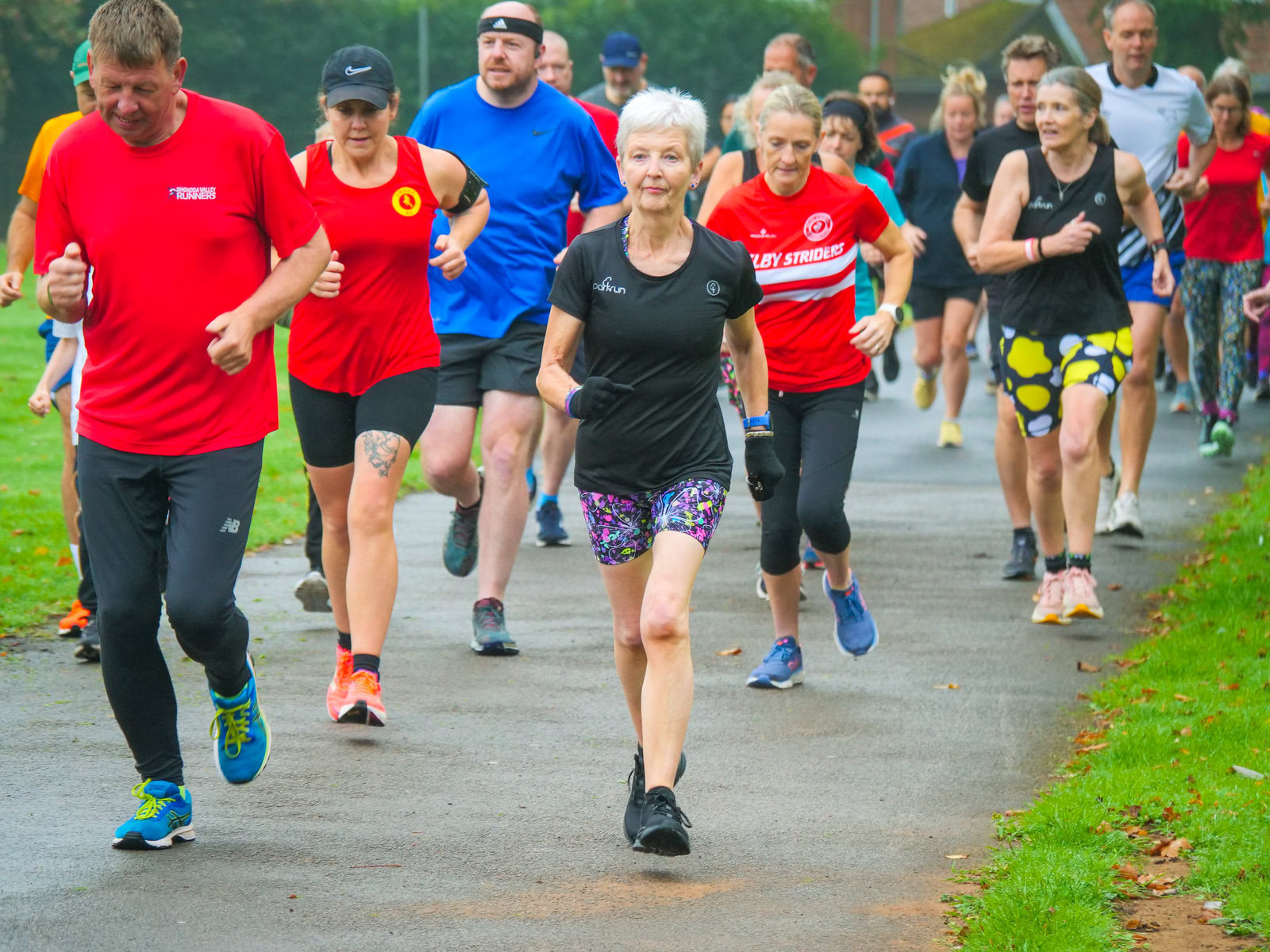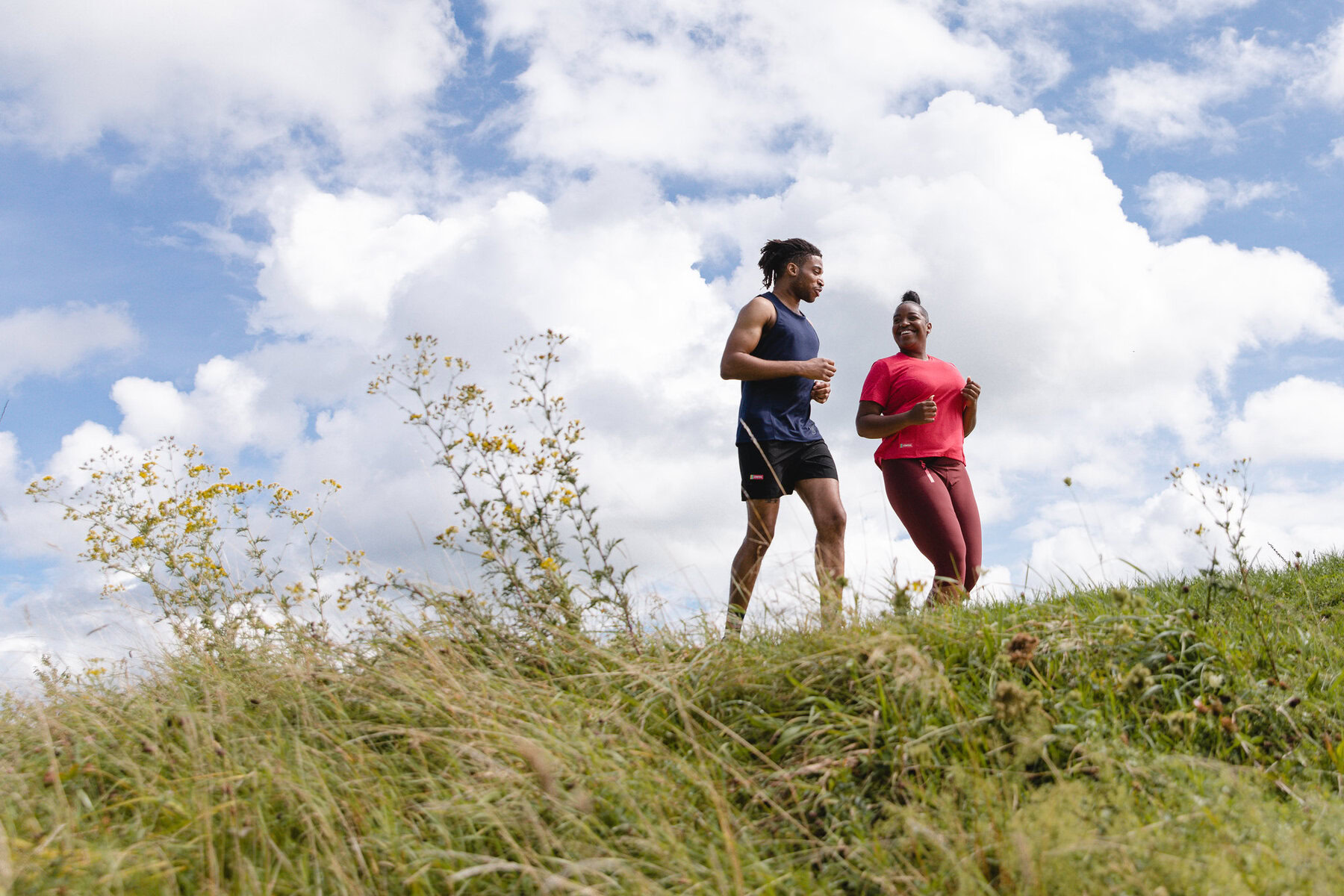When Elliott Blackmore discovered Mental Health Swims, it felt like home. Swimming and paddleboarding alone had felt lonely; other groups seemed a little unwelcoming. This community felt “totally, 100 percent nonjudgmental,” he says.
At Mental Health Swims, volunteer hosts around the UK organize meetups at the beach, lakes, rivers or outdoor pools, so that anyone can benefit from, as the organization puts it, the “healing power of cold water and community.” For Blackmore, a deputy headteacher (principal), the effect was immediate. He first joined a local swim, in Margate on the southeastern coast of England, during the winter holiday period. “Christmas was a really difficult time for me. [Swimming that day] meant that I felt, for the next two or three weeks, so much better,” he says.
The benefits of outdoor swimming are well documented, but Mental Health Swims adds another layer, notes Blackmore, now a volunteer host with the Margate group. Swimmers share the adrenaline rush of a cold-water dip — and sometimes also a chat about what’s bothering them. “When people open up like that, it means your connections become really strong, really quickly,” he says.
With its focus on “dips not distance,” Mental Health Swims is one of many groups sprouting up to encourage physical activity, whatever your ability. But the benefits may go beyond individual wellbeing. These groups also facilitate social connections, which is good for local communities. And they provide spaces for people of differing backgrounds to interact — something that experts say is sorely needed.
A strong economy needs functioning infrastructure — transport links, utilities and so on. Similarly, strong social ties require underlying support. Some call this “social infrastructure,” which researcher Dan Gregory defines as “places and spaces and structures that allow people to come together.”
By many accounts, those structures are falling away. In one survey, 71 percent of Britons said “community” had declined in their lifetime; people are less likely to be part of a local group, volunteer, or attend church or community activities than 10 years ago. Countless pubs, libraries, post offices, youth centers and more have closed in recent decades; areas most in need are often the hardest hit. And people notice the loss. In one poll, in so-called “left behind” neighborhoods in England, more than half of respondents said the biggest thing they were missing out on was “places to meet,” more so than job opportunities or housing. The loss of such spaces may have other implications: One study found that closure of community pubs correlated with increasing support for the radical right, possibly because of increased social isolation.
New social spaces are replacing the UK’s pubs, bingo halls and working men’s clubs of the past, says Gregory: soft play areas for kids, microbreweries, escape rooms and climbing walls, among others. But these are often privately owned, difficult to reach by public transport and cost money to use. Private ownership isn’t necessarily a bad thing, Gregory points out — for example, a managed skatepark can block off sessions for young girls, while a free one might be dominated by older males — but can be problematic if it becomes default.

One place that gathers a mix of people, by striking a balance as a business focused on inclusivity, is Project PT. The Oxford-based gym is designed for those who wouldn’t normally consider a gym — such as young women who avoided sports at school, retirees recovering from a fall, those experiencing anxiety or depression, or transgender people (who may be put off by heavily gendered clothing, inadequate changing facilities and fears of being judged). The setup differs from conventional gyms, in a bid to be as welcoming as possible: no mirrors, no loud music; gender-neutral changing areas. Co-founder Ajaye Hunn-Phillips hopes that the resulting mix of people promotes more understanding, helping members “to know who’s in their community.”
Project PT has a particular emphasis on helping vulnerable young people, and runs various social impact projects. Hunn-Phillips previously worked with young ex-offenders, and learned that grant money could easily dry up. That influenced her approach with Project PT: “We wanted a commercially viable business that supports young people, no matter whether there was funding available or not.”
Crushed by negative news?
Sign up for the Reasons to be Cheerful newsletter.
The model seems to be working: Project PT recently raised £350,000 ($450,000 US) to establish three more gyms in the city. It does not specifically track its impact on wider social cohesion, but Hunn-Phillips says the youth programs nurture skills like communication and empathy. And in gym classes, participants always get partnered up; newcomers are matched with a chatty member to help them quickly find their feet. “That supports people to build friendships,” she says.
For some, the biggest barrier to finding a community is the very first step. “We get how hard it can be to join new groups, especially when you live with mental health issues,” says Sarah Groves, community engagement manager at Mental Health Swims. That was also the experience of the founder, Rachel Ashe. After a mental illness diagnosis, she found trying new activities and joining groups daunting, but also realized how beneficial swimming could be. She created the first monthly meetup in 2019 at her local beach in Scotland, to welcome anyone struggling with their mental health. There are now 150 groups across the UK and beyond.
Hosts play an important role in ensuring swimmers feel safe, and are trained in mental health and cold water safety, with a strong emphasis on prevention. The hard part, says Laura Carlin, a volunteer host in Margate, is “telling someone when to get out.”
Mental Health Swims does not collect data on participants’ backgrounds when they sign up, but recently surveyed participants so it can “work towards” more inclusivity, says Groves. Its new Swim Together program, which extends the model to indoor pools at recreation centers, means people unable to swim outdoors for various reasons can also participate.

One example of just how popular an inclusive sports community can become is parkrun. It’s a simple concept: run (or jog or walk) five kilometers each Saturday morning in your local park, supported by volunteers. Created in 2004 in London, it now takes place in 2,400 locations in over 20 countries. You can drop in just once or every week, and there’s no time limit. In fact, the average finish time has risen from 22 minutes in 2005, up to 32 minutes last year. Parkrun Global, the charity behind the events, says this is ideal: It means they’re attracting a wider range of abilities.
Nicky Yeates, age 67, first discovered parkrun in 2012, and regularly runs in Brighton, in the south of England. It kickstarted a new passion: She has since completed several marathons and countless half-marathons. “It changed my life, really,” she says.
It’s not just about fitness, though. It’s also, Yeates says, an “absolutely lovely community.” That’s the case even among big numbers — 400 to 600 people participate in her local park — because people tend to run at a consistent pace, so you get to know your peers. Yeates also volunteers there roughly once a month.
Parkrun Global says it’s proud to make it “easy for communities to deliver free-to-access events in a low-cost, replicable and sustainable way, whilst enriching and empowering the very communities of which they are a part.” In a survey among its volunteers in 2023, 96 percent said volunteering made a difference to their community.
But alongside significant growth, parkrun has experienced several hurdles, including disagreements about who should pay for the upkeep of parks, and about its policy of welcoming transgender participants. It also faced the fallout from an undisclosed financial conflict of interest by a former boss.

Smaller groups also meet challenges. For Mental Health Swims, that includes ensuring volunteers — many of whom experience mental health issues themselves — don’t feel burdened by the responsibility of hosting. Water pollution can also prevent swims from going ahead. Even public pools have their pressures, including a shortage of lifeguards and rising energy costs.
Few groups or spaces can be 100 percent inclusive. What’s important, says Gregory, is to have enough of a mix so that “collectively, all this stuff is ticking a range of boxes.” A church might, for example, unite different generations, while a climbing wall might gather a mix of ethnic backgrounds. But the overall picture is still unclear, he believes, and we need more attention on where the gaps might be.
We need spaces that “nudge us up against people who we don’t normally see,” he adds. “That’s what will help build community cohesion and understanding of each other’s lives.”
The post A Sporting Way to Build Community appeared first on Reasons to be Cheerful.


